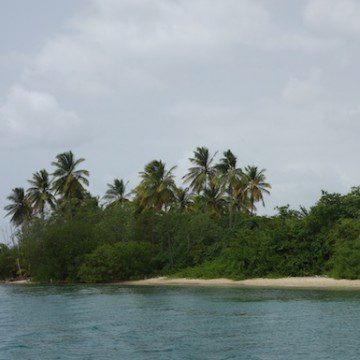Climate Change Isn’t Main Culprit in Decline of Coral Reefs: Report

By the Caribbean Journal staff
Just one-sixth of the original coral cover in the Caribbean remains.
And if things stay the way they are, most Caribbean coral reefs may disappear in the next two decades, according to the International Union for Conservation of Nature.
But that doesn’t have to be the case, the IUCN said in a new report.
According to Status and Trends of Caribbean Coral Reefs: 1970-2012, restoring parrotfish populations, protecting from overfishing and coastal pollution and other ways to improve coastal management can “help the reefs recover and make them more resilient to future climate change impacts.”
“The rate at which the Caribbean corals have been declining is truly alarming,” said Carl Gustaf Lundin, director of IUCN’s Global Marine and Polar Programme. “But this study brings some very encouraging news: the fate of Caribbean corals is not beyond our control and there are some very concrete steps that we can take to help them recover.”
Since the 1970s, coral reefs in the Caribbean have declined by more than 50 percent.
While climate change is a “serious threat,” it’s not the main culprit, the report said, although it remains a serious one.
In fact, it’s been the loss of parrotfish and sea urchin — the main grazers of coral reefs — that has been the “key driver of coral decline in the region.”
Th report found that a still-unidentified disease led to “mass mortality” of sea urchin in 1983 and extreme fishing has brought parrotfish “to the brink of extinction” in some regions.
“Even if we could somehow make climate change disappear tomorrow, these reefs would continue their decline,” said Jeremy Jackson, lead author of the report. “We must immediately address the grazing problem for the reefs to stand any chance of surviving future climate shifts.”
Indeed, areas that have banned or restricted fishing practices that harm parrotfish have some of the healthiest Caribbean coral reefs.
These are areas like the Bermuda and Bonaire.
That comes in contrast to places like the Florida Reef Tract from Miami to Key West and the US Virgin Islands, where parrotfish are not protected, according to the report.
Another island, Berbuda, is about to ban all catches of parrotfish and grazing sea urchins and set aside one-third of its coastal waters as marine reserves, according to Ayana Johnson of the Waitt Institute’s Blue Halo Initiative.
“This is the kind of aggressive management that needs to be replicated regionally if we are going to increase the resilience of Caribbean reefs,” she said.
Parrotfish populations are “crucial to the very survival of coral reefs,” according to Jerker Tamelander, head of the UNEP coral reef unit.
“We urge the Caribbean nations to work together to protect them and jointly respond to the Caribbean coral reef crisis,” he said.







